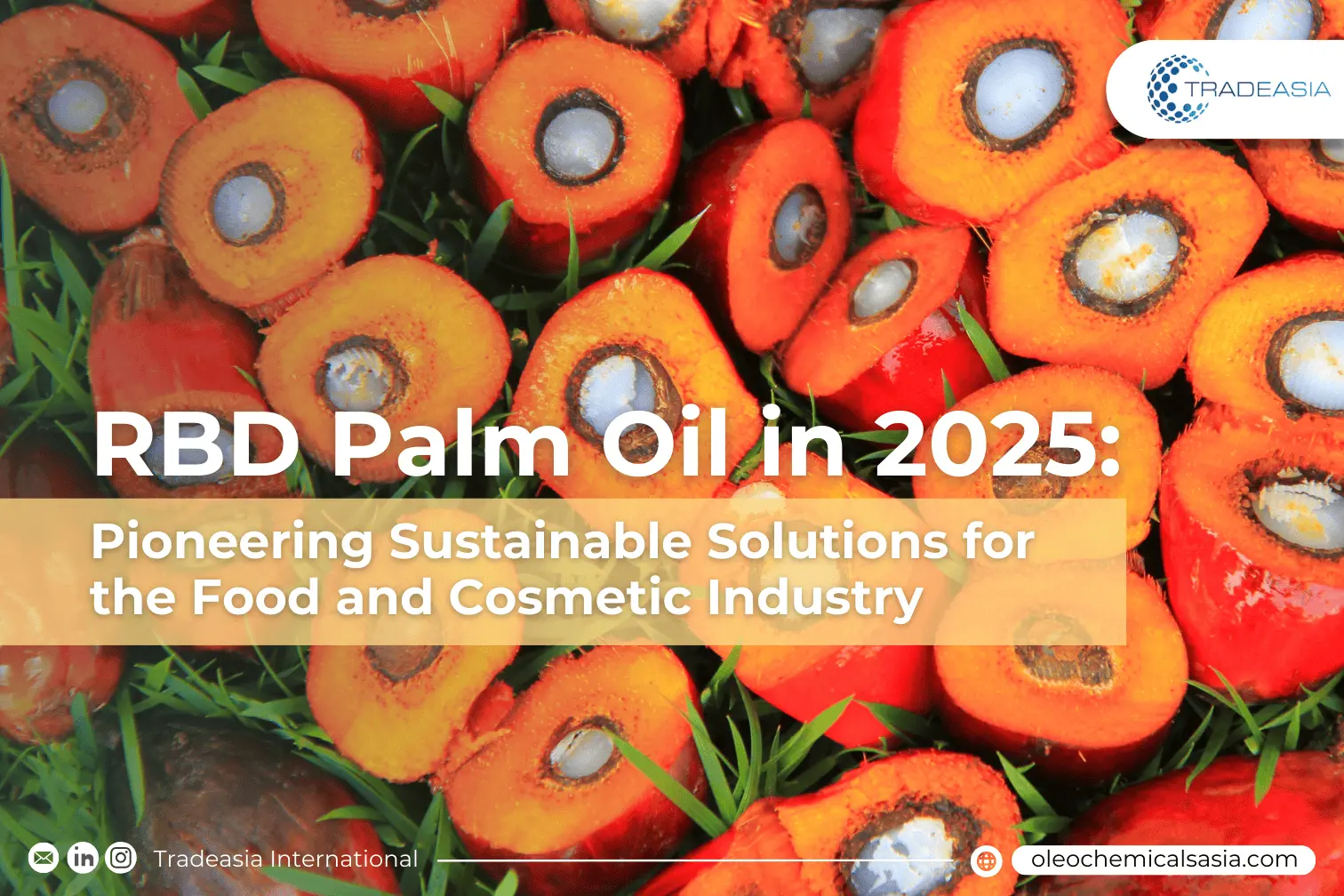A Market Shaped by Demand, Regulations, and Global Trade Dynamics
Refined, Bleached, and Deodorized (RBD) palm oil continues to gain prominence in 2025 as a vital sustainable raw material, particularly for the food, beverage, and cosmetics industries. The global market reached USD 43.32 billion in 2024 and is forecast to grow at a steady CAGR of 3.14% through 2033, potentially achieving USD 58.03 billion. This growth is driven by consumer preferences shifting towards sustainable, halal, vegan, and clean-label products, while market pricing remains resilient despite external pressures.
Key supply dynamics are shaped by production risks in Southeast Asia—most notably the impact of El Niño on yields in Indonesia and Malaysia—combined with heightened procurement standards in Europe and North America. The introduction of the EU Deforestation Regulation (EUDR) has reshaped trade flows, requiring proof of deforestation-free sourcing and reducing export volumes to the EU. However, this has been counterbalanced by rising demand across Asia and North America, maintaining strong global trade flows and stabilizing pricing despite regulatory volatility.
Consumer behavior has also shifted towards ethical and health-conscious choices. Halal certification remains a cornerstone for Muslim-majority markets, while vegan and clean-label products have become key differentiators for global brands. These preferences are particularly evident in the personal care and cosmetics sectors, which are among the fastest-growing end-users of RBD palm oil. Its natural lipid composition, stable blending properties, and compatibility with eco-friendly formulations have positioned it as a preferred ingredient in sustainable product innovation.
Sustainability Through Innovation and Certification
Beyond market dynamics, innovation in refining technology has elevated the sustainability profile of RBD palm oil. Advances now focus on reducing chemical inputs, cutting emissions, and improving energy efficiency. These refinements not only enhance the oil’s stability and nutrient retention but also align with circular economy principles by minimizing waste along the production chain. For manufacturers in both food processing and cosmetics, such improvements translate into higher-quality products with reduced environmental footprints, strengthening the appeal of RBD palm oil as a responsible sourcing choice.
Equally important are the certifications that define market access and consumer trust. The Roundtable on Sustainable Palm Oil (RSPO) and the International Sustainability and Carbon Certification (ISCC) remain crucial in ensuring adherence to stringent environmental, social, and traceability standards. For exporters and producers, certification is no longer optional but a prerequisite to enter premium markets in the EU and North America. These frameworks guarantee that RBD palm oil is produced without deforestation, with respect for labor rights, and in line with responsible resource management. Brands that embrace certified sourcing are not only complying with regulations but also gaining a competitive edge in meeting rising consumer expectations for transparency and sustainability.
In essence, RBD palm oil in 2025 is evolving from a commodity into a strategic, sustainable ingredient. Its growth is anchored by robust consumer demand, innovative refining practices, and rigorous certification systems that ensure its long-term role in global supply chains. As the industry continues to adapt to price fluctuations, regulatory challenges, and evolving consumer values, RBD palm oil is positioned to remain at the forefront of sustainable solutions in food, beverage, and cosmetics worldwide.

Leave a Comment